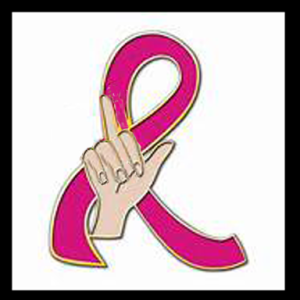Dear Scientific Researcher,
What you do is extremely important and provides hope to those like me living with metastatic breast cancer. The projects you choose, and the collaborations and advances you make, can be vital to ending the set of diseases known as breast cancer, thereby saving thousands of lives in the future.
I have met many of you on various review panels and have sat in the room with you, discussing the strengths and weaknesses of proposed breast cancer studies. You bring in scientific viewpoints; I bring in the views of the community, particularly the views of the patient advocate. Sometimes you get wrapped up in the elegance of a specific study and shift uneasily in your seats when I ask: “So how does this study help us save lives or prevent the disease from happening in the first place?”
I realize how difficult it is to obtain funding for your labs and that some of you have had to dismiss some talented members of your teams due to lack of funding. I have raised over $50,000 for breast cancer research and have lobbied dozens of times on Capitol Hill to secure your research dollars. I feel your pain.
I have attended far too many funerals cloaked in pink ribbons. Inspiring women, creative women, and yes, demanding women and men have suffered and died at the hands of this disease. Each day, those who call themselves survivors, live with dark clouds over their heads housing thunderbolts of lingering fears that recurrence and death is in the forecast.
When I read funding proposals, it makes me aware how little you really know about curing breast cancer in humans. You don’t know how many breast cancers start, how to accurately detect breast cancers, why mutations happen, why the immune system ignores these aberrant cells, how cancer cells can survive throughout the body and colonize in new locations, or how some cancer cells resist treatment. Sure, you know some, but not enough.
We have spent billions of dollars on breast cancer research, from both the public and private sectors. You have written thousands of peer-reviewed journal articles on the subject. You have attended and presented at hundreds of breast cancer symposia, costing millions of dollars and thousands of hours.
Securing study funding, publishing papers and presenting findings seems to have become an end unto itself for some of you. Finding real cures for real people appears to have been lost in the shuffle.
You study signaling pathways that end up worthless as targets for treatments due to the body’s ability to create redundant systems. You study different dose levels of the same thirty-year-old chemotherapy treatments on lab mice and proudly boast that the new combination extends life a few months. You repeat unsuccessful research studies because prior scientists failed to produce their findings. You plunge into nanoparticle technology to find the right shape to fit into cell receptors in order to develop a toxic payload into cancer cells, and discover the keys can’t find the locks. You study the neighborhood around cancer and try to figure out if that’s what fosters new cancer formation. You spend years discovering new cellular mechanisms, write about them, and then look for your next project.
All of this: Yet people keep dying. At least one has died from breast cancer as you read this letter.
But are you building stairways to nowhere?
What happens after you publish your findings? When you finish a project what happens next? How are your results applied to get us any closer to actual treatments or prevention? How do you hold yourselves accountable to clinicians, patients and the general public? How can you make it less about “publish or perish” and more about saving lives? How can you make sure you ask the right questions before starting any new project instead of building a stairway leading to nowhere?
Are you satisfied with your own progress? How would you feel if someone undergoing treatment looks over your shoulder as you work? Would you personally go to your friends and family, asking them to donate to the work you are doing right now? If your own loved-one was diagnosed with breast cancer, what steps would you take to make sure they would not perish from the disease?
These are important things to think about. I know you work hard. I work hard at staying alive. Both jobs are difficult.
What I’m asking you to do is to consider your role in the fight to end breast cancer. Are you winning or losing? What can you personally do to ask the right research questions that are not redundant or merely interesting, but are important to finally putting an end to breast cancer? How can you make sure that your research makes a real difference and foster translation into the clinic?
I’m fighting the battle every day. Please do what you can to fight with me. Put an end to building stairways to nowhere.
Sincerely,
Sandra Spivey


